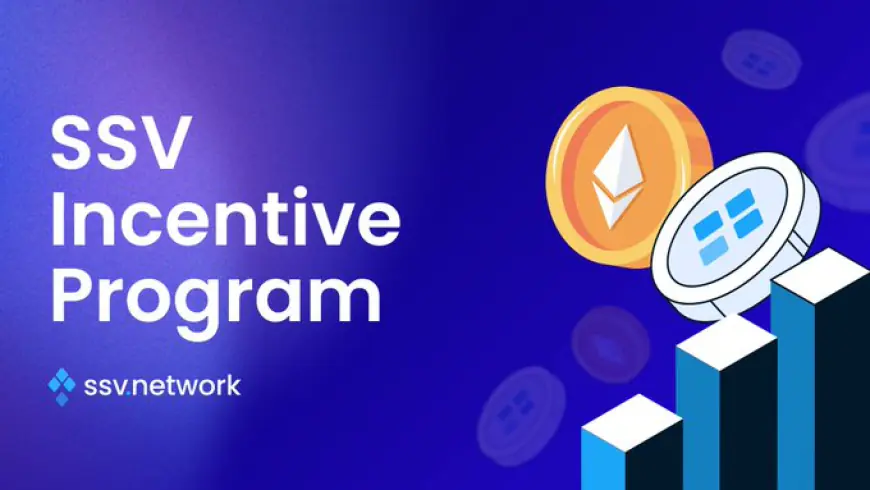SSV Network Enhances Incentivized Mainnet Program to Propel Distributed Validator Technology
SSV Network extends its Incentivized Mainnet Program to December 2024, increasing total duration to 15 months. New tiered APR rewards system implemented, offering up to 30% APR boost for the first 30,000 validators. On June 26th, SSV Network, a prominent provider of blockchain infrastructure, announced revisions to its incentivized mainnet program (IMP) in Tel Aviv. [...]


- SSV Network extends its Incentivized Mainnet Program to December 2024, increasing total duration to 15 months.
- New tiered APR rewards system implemented, offering up to 30% APR boost for the first 30,000 validators.
On June 26th, SSV Network, a prominent provider of blockchain infrastructure, announced revisions to its incentivized mainnet program (IMP) in Tel Aviv. These changes, approved through a decentralized governance vote, include an extension of the program’s duration, an update to reward tiers, increased APR (Annual Percentage Rate) rewards, and refined eligibility criteria that now include SAFE multisig wallets.
The update, known as DIP 18, was initiated by a proposal from a user named ‘BenAffleck.’ It garnered substantial support within the community, with over 99% of participants voting in favor. The changes aim to enhance participation and reward validators more effectively within the network.
Program Enhancements for Extended Rewards
SSV Network’s IMP, managed by the SSV DAO, is designed to incentivize early users and broaden the adoption of its Distributed Validator Technology (DVT). This technology is integral to the network’s strategy to enhance Ethereum staking solutions.
Validators on the SSV Network are monitored monthly, with rewards calculated and distributed based on active days confirmed via on-chain Merkle proofs. These processes are conducted transparently, ensuring all activities are verifiable.
The recent governance decision extends the IMP to December 2024, increasing its total duration to 15 months. This extension is intended to attract more validators by offering extended periods for earning rewards. Additionally, this adjustment addresses earlier constraints when the network operated on a permissioned basis.
Refined Reward Structure
The approved adjustments also introduce a new tiered reward system, which promises enhanced APRs for validators. The first 30,000 validators are set to receive a 30% APR boost, followed by a 20% increase for validators numbered 35,001 to 45,000, and a 10% boost for those ranked 45,001 to 100,000. These changes took effect immediately following the vote, promising good benefits for early and active participants in the network.
Eligibility Adjustments for Broader Inclusion
The revisions further refine eligibility requirements to rectify previous oversights, notably including validators using SAFE multisig wallets. This update ensures that rewards are directly attributed to SAFE wallets rather than their deployers, aligning benefits more closely with users who employ multi-sig configurations.
The initiative underscores SSV Network’s commitment to fostering a robust, secure, and scalable environment for Ethereum staking. By adjusting the IMP terms, the network not only boosts its technological adoption but also enhances user engagement through more appealing and accessible staking rewards.
Claiming Rewards and Program Continuity
Rewards accrued during each month are claimable by community members by the 15th of the following month, facilitated through a detailed process available on the SSV network’s website. While the latest changes are now effective, the original terms of the IMP remain applicable to areas not amended by this update.
- Rewards can be claimed on the Ethereum mainnet using a specified process here >> https://ssvscan.io/claim/
Through these updates, SSV Network continues to solidify its position as a leader in decentralized blockchain infrastructure, paving the way for more dynamic and inclusive participation in the future of Ethereum staking.
Learn more: https://ssv.network/
What's Your Reaction?









































































































